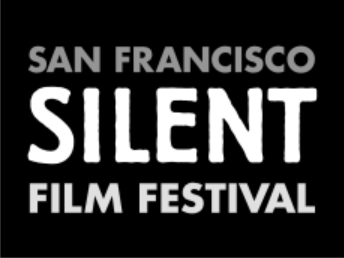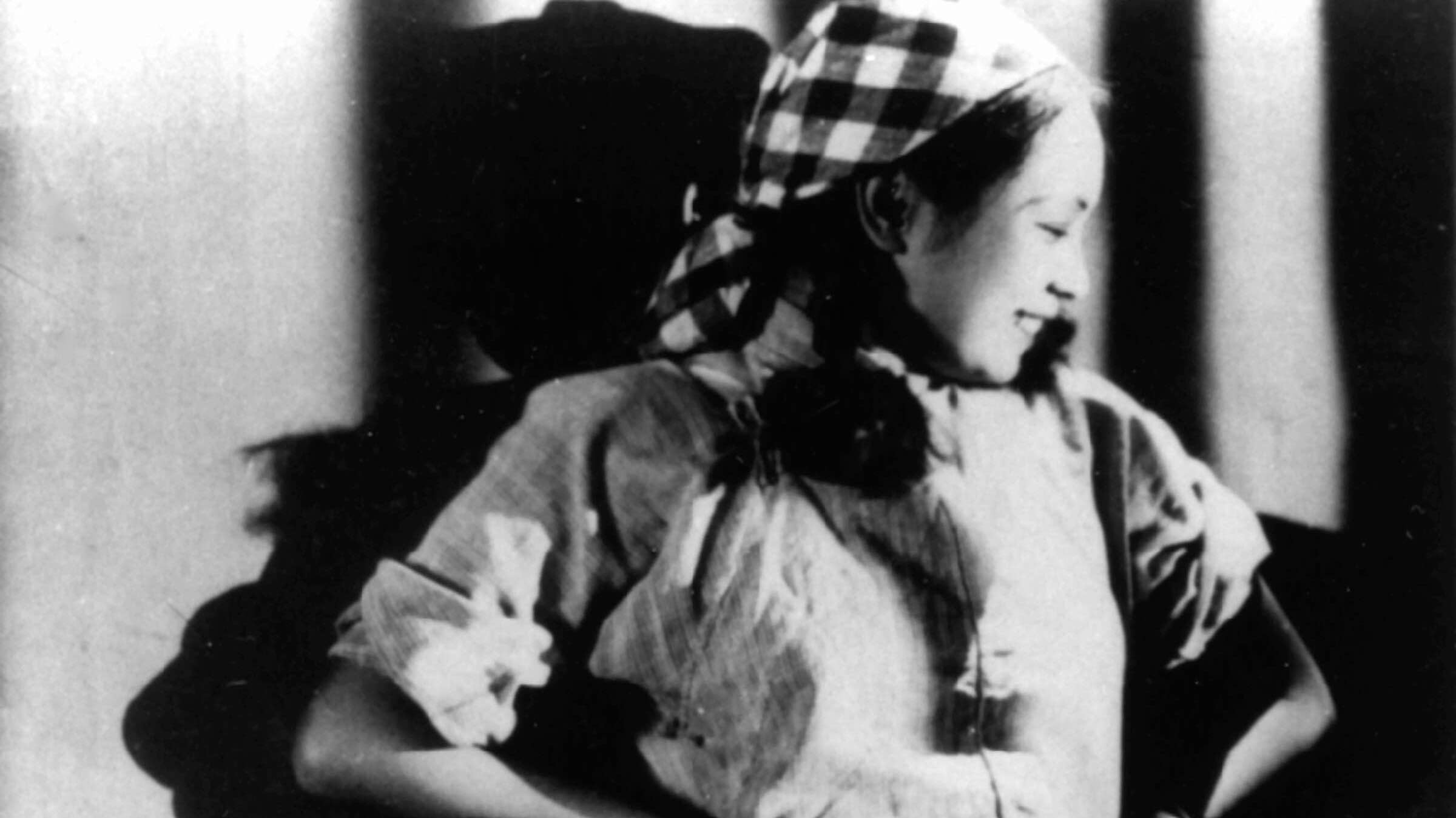The city of Shanghai in the 1930s was a center of great social and political upheaval. The Kuomintang, or Chinese Nationalist Party, was busy trying to rout the then-underground Chinese Communist Party, while one thousand miles to the north, Japanese Imperial forces had occupied Manchuria. Chiang Kai-Shek, the leader of the Kuomintang (KMT), took an attitude of appeasement toward the Japanese, further infuriating the Communists (CCP), who in turn sought to overthrow the KMT government. The epicenter of these clashing forces, Shanghai was also the locus of Chinese cinema, which was in the midst of its own transformation, away from its former theatrical style toward a socially conscious realism.
Released during this period of intense change, 1932’s Wild Rose was an early film by Sun Yu, one of China’s most celebrated directors. The story of a country girl who moves to Shanghai and falls in with a band of would-be revolutionaries, Wild Rose contains the humanist and patriotic themes that would characterize the director’s later works. Despite Sun’s reputation as a director who made films for the betterment of the common people, Communist leader Mao Zedong would denounce him in 1951, ending his filmmaking career.
Born March 21, 1900, in Chongqing, Sichuan province, Sun Yu earned prominence for his films of the 1930s and 1940s. Controversial in their time, many are now considered classics of early Chinese cinema. After graduating from Beijing’s Qinghua University, Sun went to the United States, where he studied drama at the University of Wisconsin. He later took cinematography and film editing courses at the New York Institute of Photography and theater courses at Columbia University from Cecil B. DeMille’s mentor David Belasco. In 1926 he returned to China where he directed his first film, A Romantic Swordsman (1929). Sun is credited with raising the artistic quality of Chinese cinema using the new filmmaking techniques he had learned abroad.
Sun Yu was one of the core directors at the prestigious Lianhua Film Company. Formed in 1930 from the merger of two production companies, Mingxin and Great China-Lily, the new studio employed a group of highly educated people noted for their progressive, westernized views. Lianhua’s board of trustees consisted of prominent figures in politics and business and was closely allied with the Kuomintang government. However, the studio maintained its independence and was never subjected to government control. In its manifesto, Lianhua declared its ambitious goal to “elevate art, promote culture, enlighten the masses, and rescue China’s film industry from degeneration and deterioration.”
Despite its ties to the KMT, Lianhua seems to have tolerated Sun’s leftist political views. His best known films, such as Big Road (1934) and Little Toys (1933), contain patriotic, anti-Japanese themes, and a scene in Wild Rose shows the heroine leading village children in military training. Sun was part of a newly formed group of socially conscious actors and directors united in the common belief that cinema ought to promote social progress and improve people’s lives. However, unlike the far-left radicals, Sun was not a member of the Communist Party, nor did he advocate the violent overthrow of the KMT government. Instead, his films expressed outrage over social injustice and advocated sweeping social reform, including revolt against the Japanese. Even though Sun Yu shared many of the Communists’ ideals, his films were not openly critical of the KMT government. When the CCP came into power in 1949, the director and his films (Wild Rose among them) fell out of favor.
Wild Rose’s starring actress, Wang Renmei, marked a departure from the delicate, mannered actresses who had previously dominated the Chinese screen. Nicknamed “Tiger Cat” for her natural, athletic acting style, Wang was perfectly cast in Wild Rose as the barefoot country girl who inspires a band of Shanghai revolutionaries. Her first starring role, the part was written specifically with the 17-year old in mind. Born December 1914, in Changsha, Hunan province, Wang became one of the most popular film actresses of her day. Her refreshingly realistic portrayal of the carefree goose girl taken under the wing of a sophisticated Shanghai artist was perceived as Wang simply playing herself. Chinese audiences at the time often did not distinguish between an actress and the roles she played and, in the 1930s, admired those who seemed to portray their “true selves” on screen. Praised for her athletic body as well as her attractive features, Wang embodied the spirit of the “modern beauty,” who was far more active and robust than her delicate 1920s counterpart. When Wang married her Wild Rose costar Jin Yan, the confluence of Wang’s professional and private life added to her popularity.
Jin Yan was born April 8, 1910, in Japanese-occupied Korea. In 1912, his family fled to China to avoid the arrest of Jin’s father, a founder of the Korean national independence movement. Jin began his film career in 1929, appearing in several swordplay films. After joining the Lianhua Film Company in 1930, he starred in nearly every major production released by the studio. In a 1932 poll conducted by a Shanghai newspaper, Jin’s fans voted him “King of the Screen.” Among his numerous films are Wild Flower (1930) and Big Road (1934), both directed by Sun Yu. Jin’s athletic physique was a departure from the effeminate, carefully groomed types of the 1920s, and audiences responded favorably to the virility he projected in his roles. Although Jin and Wang appeared together in at least two additional films (Two Galaxy Stars in 1931, and Sun Yu’s The Vast Sky in 1940), the couple divorced in 1944.
Set against the backdrop of Shanghai, Wild Rose reflects the political, social, and artistic upheaval of life in 1930s China. In the film, as in life, the city was the scene of clashes between East and West, rich and poor, rural and urban, progressives and reactionaries. Despite his humanism, Sun Yu proved to be another casualty of this turbulent period and was branded a “poetic” filmmaker by the leftists, who criticized his films for idealizing life under the KMT. Wild Rose, Big Road, and Little Toys were condemned when the CCP came to power for romanticizing country life and for portraying the KMT troops as the leaders in the struggle against the Japanese.
Ever the idealist, Sun wrote and directed The Life of Wu Xun in 1950. The story of a late Qing Dynasty figure who begs for alms in the street to raise money for schools advanced Sun’s belief that the poor could only overcome their fate through education. In 1951, Communist leader Mao Zedong denounced the film as counterrevolutionary and for advocating feudalism. During the Cultural Revolution, Sun was arrested and subjected to public denunciation, which damaged his health. During the next four decades, Sun directed or co-directed only three more titles, none of which matched the artistic quality of his pre-1949 work. He died in Shanghai on July 11, 1990, at the age of 90.
Presented at SFSFF 2009 with live music by Donald Sosin

